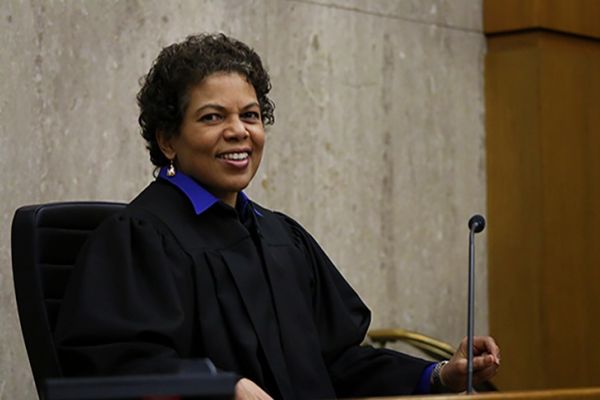In a recent legal development that has captured the attention of the nation, former President Donald Trump has called for the recusal of U.S. District Judge Tanya Chutkan from presiding over the federal case related to the events of January 6, 2021. Trump’s legal team asserts that Judge Chutkan’s prior public statements on related matters have raised concerns about impartiality and their potential impact on the proceedings. Follow Our website TheGossipsWorld Media for the latest updates!!!!!
Trump’s Ongoing Legal Challenges
Page Contents
This motion for recusal is just one element of the legal challenges that former President Trump currently faces. He is indicted on four criminal counts related to alleged conspiracies to overturn the results of the 2020 election. Special Counsel Jack Smith is leading these cases, which carry significant implications for Trump’s political future.
Despite these legal hurdles, Trump remains the leading contender in the GOP’s 2024 primary race, highlighting the complex intersection of law and politics in his ongoing legal battles.
The Motion for Recusal
Trump’s attorneys have taken a bold step by filing a motion for the recusal of Judge Chutkan from overseeing the case stemming from the January 6th events at the U.S. Capitol. In their motion, they argue that Chutkan’s previous public statements, which suggested a particular stance on individuals connected to the January 6th events, cast doubt on her ability to preside impartially over Trump’s case.
The motion highlights the need for an unbiased judge in such a high-profile and consequential case, emphasizing the importance of preserving the appearance of fairness in the eyes of the public.
Judge Tanya Chutkan’s Background
Judge Tanya Chutkan, an Obama nominee, is known for her no-nonsense approach to sentencing individuals involved in the January 6th attack on the Capitol. Her reputation for imposing stringent penalties has earned both accolades and criticism, further fueling the debate surrounding her involvement in this case.
The Controversial Statements
Central to the recusal motion are two specific statements made by Judge Chutkan during previous cases related to the January 6th riot. Although these statements do not directly mention Donald Trump, they allude to the broader context of the events and the individuals involved.
In one instance, during the sentencing of Jan. 6 defendant Christine Priola, Chutkan remarked that those involved in the Capitol breach exhibited “blind loyalty to one person who, by the way, remains free to this day.” This statement implies a pre-existing opinion about the motivations of the individuals connected to the January 6th events.
Another statement cited in the motion occurred during the 2021 sentencing hearing for Jan. 6 defendant Robert Scott Palmer. Palmer, who had actively participated in the attack, received a substantial prison sentence. Chutkan noted during the hearing that Palmer had raised a valid point about certain individuals not being charged, implying that she had opinions about the broader implications of the events.
Expert Opinions on the Recusal Motion
The decision to seek the recusal of a judge, particularly after the setting of a trial date, is a rare legal maneuver. Legal experts have weighed in on the likelihood of success for Trump’s recusal motion, with opinions varying widely.
Joyce Vance, a law professor at the University of Alabama and a legal analyst for NBC News and MSNBC, has described the motion as unsurprising but unlikely to succeed. Vance’s assessment underscores the inherent challenges of convincing a judge to step aside from a case, especially when it involves a prominent defendant.
Stephen Gillers, a legal ethics professor at New York University School of Law, has echoed similar sentiments. He argues that statements made within the scope of a case, even by a judge, should not serve as grounds for recusal. According to Gillers, judges are fulfilling their roles when they comment on the facts and circumstances presented in their courtrooms.
Broader Implications
Beyond the intricacies of Trump’s legal maneuvers, there are broader implications at stake. Some legal scholars and advocacy groups argue that regardless of the outcomes of the criminal cases, the 14th Amendment to the U.S. Constitution may disqualify Trump from holding office again due to his alleged incitement of the January 6th insurrection.
This assertion underscores the enduring legal and political drama surrounding the former President and the potential consequences of his actions.





